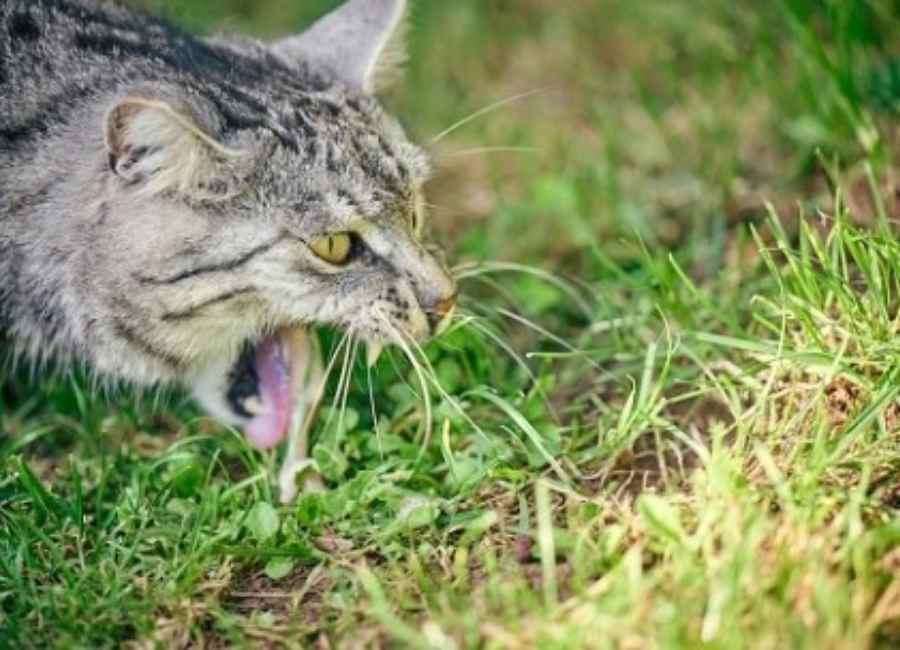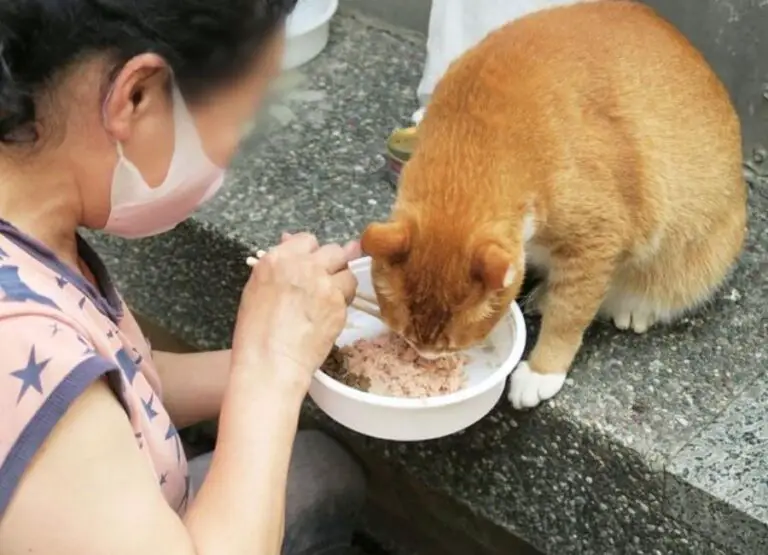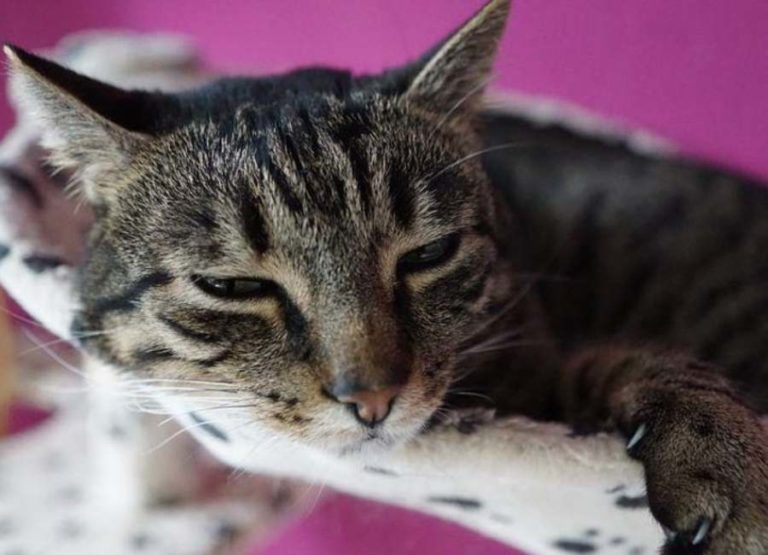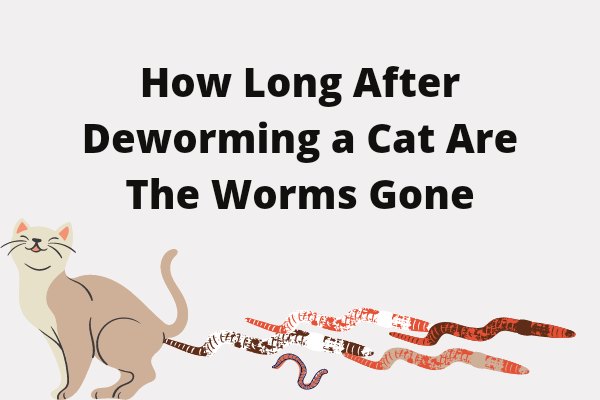Why Do Cats Throw Up (11 Top Reasons & Tips)

Most cat owners do ask why do cats throw up if you are worried about such questions then keep reading.
In this post, I will be discussing the most common reasons why cats throw up.
I will also outline ways to prevent your cat from circumstances that lead to them throwing up.
I don’t like wasting much time let’s quickly dive into your question why do cats throw up?
Why Do Cats Throw Up
There are a variety of reasons why cats throw up, but the most common one is because they have ingested something that doesn’t agree with them.
This could be anything from eating too fast to eating something that’s poisonous.
Don’t engage in self-medication for your cat if vomiting persists, always talk to your vet.
Let’s take a deep dive into why cats throw up in detail.
Reasons why cats throw up
One of the most common reasons for vomiting in cats is hairballs.
As cats groom themselves, they ingest a lot of hair, which can form a ball in their stomach.
Here are some of the most common reasons why cats throw up which include:
1. Cats throw up due to Hairballs
When cats groom themselves, they can sometimes ingest too much hair, which can form a hairball in their stomach.
When this happens, they will usually vomit up the hairball to get rid of it.
When your cat throws up because of hairballs you will definitely see hairs in the throw-up.
You are expected to contact your veterinarian for proper treatment not to do things your own way.
2. Cats throw up when they eat too much
Like humans, cats do vomit when they consume too much.
A cat who eats too much may have an enlarged stomach and experience nausea.
The surplus food is immediately vomited up by them.
Even while cleaning up after your cat vomits may be unpleasant, it’s also a positive indicator that they can get rid of the extra food.
You should take your cat to the doctor if they seem to be in discomfort or are constantly vomiting up so that you can make sure there isn’t a more severe issue.
You will always notice this type of throw-up when you see undigested food in your cat throw up, and also you know the quantity of food you offered to your cat.
3. Cats throw up when they eat too fast
Like us, cats do vomit when they eat too quickly, and they tend not to control the quantity of food they ingest.
The difference is that individuals typically slow down their eating when they realize they are doing so.
On the other hand, cats might not realize they are eating too quickly until it is too late.
In most cases, cats who vomit have eaten too much, too quickly.
They have to get rid of the food since their stomachs can’t take the rapid rush of it.
It is advised to take your cat to the doctor if they are vomiting regularly or after every meal.
There might be an underlying medical issue causing the cat to throw up.
4. Cats throw up when they are stressed
Cats can sometimes get stressed out, which can lead to them vomiting.
Did you know that although most cats are famed for their meticulous grooming practices, they also regularly vomit?
Although it can appear disgusting to us, vomiting is a typical, healthy step in a cat’s digestive process.
Vomiting can occasionally indicate stress or disease, though.
In order to assess whether there is a reason for concern if your cat is vomiting more frequently than normal, it’s crucial to pay attention to other symptoms and indicators.
When your cat is stressed, and they eat in a hurry they frequently throw up.
5. Cats throw up when they have Infections
If your cat has an infection, it can cause them to vomit.
Vomiting is one of the signs of an illness in cats.
This is due to the infection’s ability to produce vomiting by producing inflammation in the stomach and intestines.
It’s crucial to take your cat to the doctor if they are throwing up so that the infection may be addressed.
6. Cats throw up when they have a worm
Sometimes, especially if they have a severe infestation, cats can vomit up worms.
Usually, the worms are dead, but occasionally, a live one might be observed in the vomit.
It’s crucial to take your cat to the doctor for treatment if they are throwing up worms.
Here are other topics about worms you should check out:
- 10 Most Common Cat Dewormer Side Effects You Should Know.
- 17 Most Common Symptoms Of Worms In Cats You Should Know.
- How Long After Deworming a Cat Are The Worms Gone? (Answered!!!).
- Can Humans Get Worms From Cats (Detailed Answer)?
- How Do Indoor Cats Get Worms: 14 Common Ways To Note.
7. Cats throw up due to motion sickness
Just like humans, cats can get motion sickness when they travel. This can cause them to vomit.
People who have motion sickness, on the other hand, frequently feel queasy and occasionally vomit.
Motion sickness in cats can be triggered by a variety of factors, including automobile journeys, dietary changes, and even certain medical disorders.
The greatest thing you can do if your cat vomits because of motion sickness is to keep them calm and quiet.
Keep them in a calm, dark environment if at all possible, and try to prevent making any unexpected movements.
It’s crucial to introduce new meals gradually and in modest amounts if your cat is throwing up as a result of a diet change.
8. Cats throw up when they eat poison
There is a lot of false information regarding cats and vomiting out there.
It’s a common misconception that cats always vomit after ingesting poison, however, this is untrue.
In actuality, the majority of the time when cats vomit, it’s because they’ve eaten something that doesn’t agree with them or they’re unwell.
Vomiting can, however, occasionally be a symptom of poisoning.
Your cat may vomit minutes or hours after eating poison, depending on the amount it consumed.
Vomiting could not start for days or even weeks if the toxin is absorbed more slowly.
Call your veterinarian if your cat is throwing up, and you think it may have eaten something dangerous.
9. Cats throw up due to food tolerance issues
If your cat vomits after eating, there may be a food intolerance problem.
While the majority of cats can eat a range of meals, some could be sensitive to particular substances.
Take your cat to the doctor if they vomit after eating so that any other potential medical conditions may be ruled out.
After ruling out any more possible causes, you may start looking for a meal that your cat can stomach.
Cats with food intolerance concerns can choose from a wide range of special diet items.
Consult your veterinarian about the cat food that would be best for them, then begin a gradual switchover. With some practice and
10. Cats throw up due to inflammation issues
The reason why your cat is vomiting up can be related to inflammatory problems.
Although inflammation is a normal process that aids in the body’s healing, it may occasionally go wrong.
Uncomfortable symptoms like vomiting may result from this.
Take your cat to the doctor to be sure if you suspect inflammation as the cause of their vomiting.
Try to maintain their comfort and tranquility in the interim.
Make sure they have access to plenty of water if they are constantly throwing up to prevent dehydration.
11. Cats throw up due to Gastroenteritis Issues
Your cat may have gastroenteritis if it vomits and has diarrhea.
Inflammation of the stomach and intestines is known as gastroenteritis. A virus, bacterium, or parasite may be to blame.
New food or diet change may also be the culprit, as well as eating something that doesn’t agree with them.
Vomiting, diarrhea, and appetite loss are typical symptoms of gastroenteritis in cats.
Diarrhea might be bloody or watery. Additionally, your cat can be feverish and listless.
Take your cat to the veterinarian straight away if they exhibit any of these symptoms.
How to prevent a cat from throwing up
There are several ways to avoid cat vomiting causes.
To maintain a healthy digestive system in your cat, try these strategies:
- Feed your cat a high-quality diet.
- Clean your cat’s food and water bowls regularly.
- Give your cat frequent breaks from eating or drinking.
- Make sure your cat has plenty of fresh air and exercise.
- Keep your cat’s environment clean and free of toxins.
- Give your cat a monthly bath.
- Keep a close eye on your cat and take any necessary precautions if it starts to vomit excessively.
- Use a cat repellent when you are away from your cat.
- Keep your cat well-hydrated.
- Give your cat treats that are low in fat and high in protein.
- Get your cat vaccinated against diseases like panleukopenia and feline leukemia.
- Talk to your veterinarian about possible treatments for your cat’s vomiting.
Home remedies for cat throwing up
If your cat is vomiting, there are a few things you can do at home to help.
First, withhold food for 12-24 hours.
This will give their stomach a chance to rest.
You can offer small amounts of water during this time.
If they continue to vomit, or if they seem dehydrated, contact your veterinarian.
There are a few things you can give your cat to help settle its stomach.
A teaspoon of canned pumpkin (not the pie filling) can help, as can a small amount of plain, unsweetened yogurt.
You can also try giving them a small amount of ginger in their food. If you have any questions, or
If your cat is vomiting frequently, it’s important to take them to the vet to rule out any underlying health issues.
What should I do if my cat throws up
If your cat is vomiting, there are a few things you can do at home to help treat the problem.
First, offer your cat small amounts of water or ice chips to help keep them hydrated.
You can also give them a small amount of plain, unsweetened yogurt to help settle their stomach.
If the vomiting persists, or if your cat seems to be in pain, contact your veterinarian for further treatment.
When should I be worried about my cat throwing up
The odd hairball in your cat is normal, but any change in the frequency, volume, or consistency of vomiting should be taken seriously.
Vomiting in cats is particularly alarming if it is accompanied by additional symptoms like:
- Vomiting and panting too fast.
- High fever and throwing up.
- Vomiting and continuous loss of appetite.
- Throwing up and diarrhea.
- Vomiting and lethargy.
- Vomiting more than 3 times consecutively.

![Cat Lethargic Not Eating or Drinking [Reasons] Cat Lethargic Not Eating or Drinking](https://petcreeks.com/wp-content/uploads/2023/02/Cat-Lethargic-Not-Eating-or-Drinking-768x555.jpg)
![How Do Cats Get Bacterial Infections [12 Hints] How Do Cats Get Bacterial Infections](https://petcreeks.com/wp-content/uploads/2021/03/How-Do-Cats-Get-Bacterial-Infections.jpg)



![10 Signs of Depression in Cats [Causes & Tips] Signs of Depression in Cats](https://petcreeks.com/wp-content/uploads/2021/07/Signs-of-Depression-in-Cats.jpg)